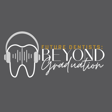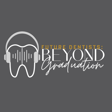
Patient Expectations
About the Hosts:
Join Dr. Savanah Craig, DDS, and Dr. Ronnetta Sartor, DMD, as they delve into the aspects of managing patient expectations in dental practice. Dr. Craig, with her refreshing approach to patient interaction, brings insights from the field and emphasizes the importance of education and clear communication. Dr. Sartor, celebrated for her holistic approach to dentistry, adds depth with her focus on educating patients about the broader health implications of oral health.
Episode Summary:
In this engaging episode of Beyond Graduation, our esteemed hosts, Dr. Craig and Dr. Sartor, hold a deeply insightful conversation about managing patient expectations in the field of dentistry. This dialogue is a vital resource for early career dentists looking to navigate the often tricky waters of patient interaction and education. The episode opens with the realities of 'practicing dentistry' and moves toward nuanced discussions of patient care.
The conversation threads its way through practical scenarios, touching upon the management of complex cases and the challenges posed by patients in desperate need for immediate results. As they delve deeper, they address the psychological aspects of patient interaction, emphasizing compassion and responsible practice.
Key Takeaways:
- Managing patient expectations begins at the initial patient interaction, emphasizing goal discussions and the importance of not rushing into treatment.
- Education is paramount for patients who present with complex health issues that impact dental care; holistic approaches lead to more meaningful patient conversations.
- Identifying when to refuse treatment is as critical as the treatment itself, aligning with professional comfort levels and clear patient communication.
- The significance of taking a gradual approach to dental restoration, mirroring the patient's journey to their current oral health condition.
- Encouraging patients to take responsibility for their oral health while providing contextual education about the implications of their conditions.
Connect with Ronnetta Sartor: @dr_sartor
Connect with FutureDentists: @futuredentists
Connect with Future Dentists Beyond Graduation: @futuredentistsbeyondgraduation
For a deeper dive into the complexities and compassionate approaches to managing patient expectations in dentistry, listen to the full episode. Stay tuned for more episodes from Beyond Graduation for real conversations and guidance on building a successful dental practice beyond the academic world.


